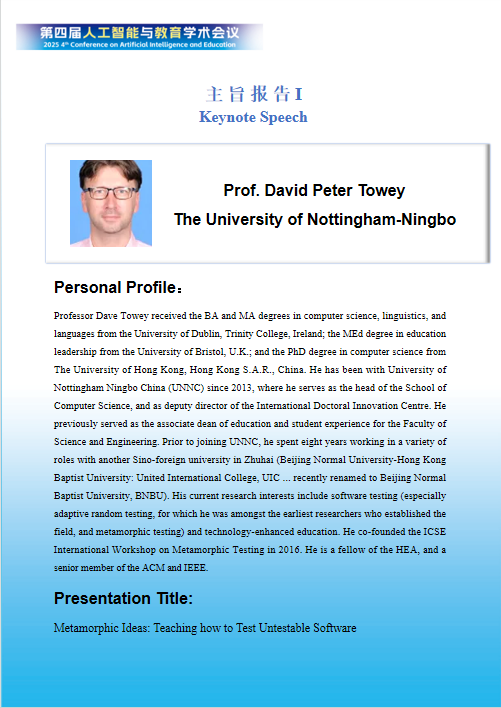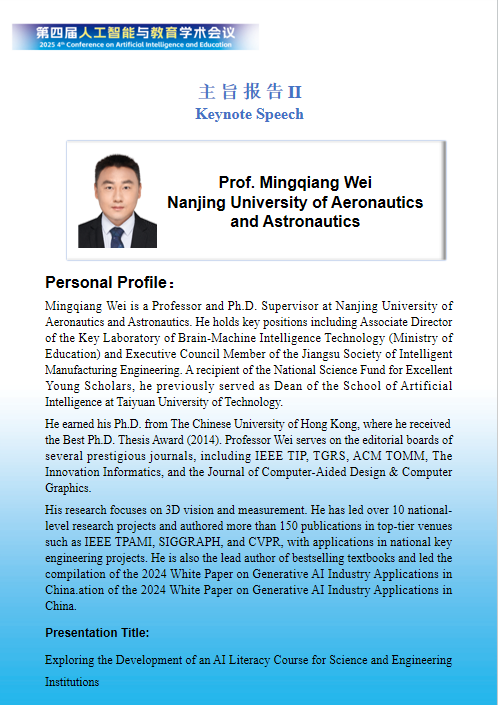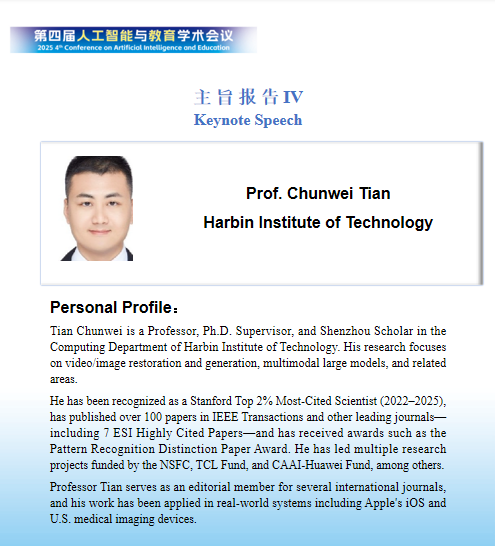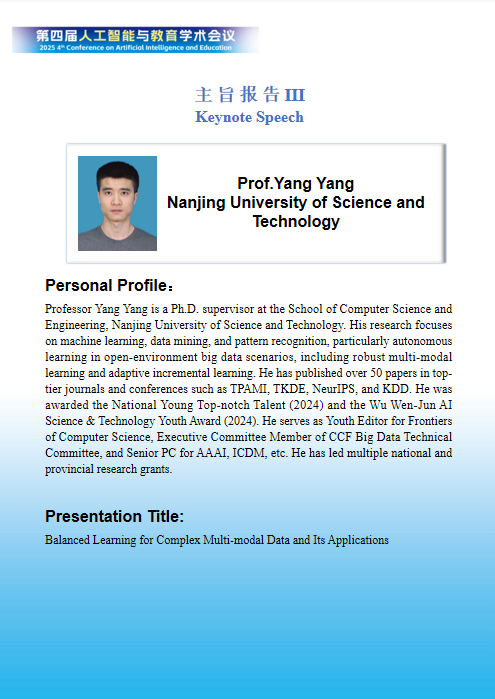
2025 4th International Conference on Artificial Intelligence and Education (ICAIE 2025)
Speakers





Speakers




Copyright© ICAIE 2025
2025 4th International Conference on Artificial Intelligence and Education (ICAIE 2025) http://ic-icaie.com/